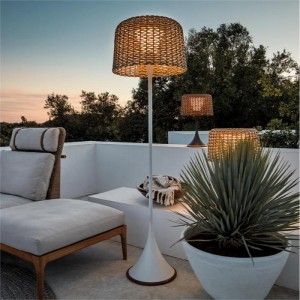With the rapid growth of the LED lamp market, product certification has become one of the key factors in entering the international market.
LED lighting certification includes a set of regulations and standards specifically developed for LED Light products to comply with. A certified LED lamp indicates that it has passed all the design, manufacturing, safety and marketing standards of the lighting industry. This is crucial for LED lamp manufacturers and exporters. This article will provide a detailed introduction to the certifications required for LED lamps in different markets.
Necessity of LED Light Certification
Globally, countries have put forward strict requirements on the safety, performance and environmental protection of LED lamps. By obtaining certification, not only can the quality and safety of products be ensured, but also their smooth access to the global market.
The following are several key reasons for LED lamp certification:
1. Guarantee product safety
LED lamps involve a variety of technologies such as electrical, optical and heat dissipation during use. Certification can ensure the safety of products during use and avoid dangerous situations such as short circuits and overheating.
2. Meet market access requirements
Different countries and regions have their own product standards and regulatory requirements. Through certification, products can smoothly enter the target market and avoid customs detention or fines due to non-compliance with requirements.
3. Enhance brand reputation
Certification is a proof of product quality. LED lamps that have obtained international certification are more likely to win the trust of consumers and commercial customers, thereby enhancing brand awareness and market competitiveness.
Common LED Light Certification Types
1. CE Certification (EU)
CE certification is the "passport" to enter the EU market. The EU has strict requirements on the safety, health and environmental protection of imported products. The CE mark proves that the product meets the basic requirements of the corresponding EU directives.
Applicable standards: The standards for CE certification for LED lights are mainly the Low Voltage Directive (LVD 2014/35/EU) and the Electromagnetic Compatibility Directive (EMC 2014/30/EU).
Necessity: It is a mandatory requirement of the EU market. Products without CE certification cannot be legally sold.
2. RoHS Certification (EU)
RoHS certification mainly controls harmful substances in electronic and electrical products, ensuring that LED lights do not contain harmful chemicals such as lead, mercury, cadmium, etc. that exceed the specified limits.
Applicable standards: RoHS Directive (2011/65/EU) restricts the use of harmful substances.
Lead (Pb)
Mercury (Hg)
Cadmium (Cd)
Hexavalent chromium (Cr6+)
Polybrominated biphenyls (PBBs)
Polybrominated diphenyl ethers (PBDEs)
Environmental protection requirements: This certification is in line with the global environmental protection trend, reducing the negative impact on the environment, and has a positive effect on the brand image.
3. UL Certification (USA)
UL certification is tested and issued by Underwriters Laboratories in the United States to verify the safety of the product and ensure that LED lights will not cause electrical problems or fire during use.
Applicable standards: UL 8750 (standard for LED devices).
Necessity: Although UL certification is not mandatory in the United States, obtaining this certification helps enhance the competitiveness and credibility of products in the US market.
4. FCC Certification (USA)
FCC (Federal Communications Commission) certification applies to all electronic products involving electromagnetic wave emission, including LED lights. This certification ensures the electromagnetic compatibility of the product and does not interfere with the normal operation of other electronic devices.
Applicable standard: FCC Part 15.
Necessity: LED lights sold in the United States must be FCC certified, especially LED lights with dimming function.
5. Energy Star Certification (USA)
Energy Star is an energy efficiency certification jointly promoted by the US Environmental Protection Agency and the Department of Energy, mainly for energy-saving products. LED lights that have obtained Energy Star certification can reduce energy consumption, save electricity costs, and have a longer service life.
Applicable standards: Energy Star SSL V2.1 standard.
Market advantages: Products that have passed the Energy Star certification are more attractive in the market because consumers are more inclined to buy energy-efficient products.
6. CCC Certification (China)
CCC (China Compulsory Certification) is a compulsory certification for the Chinese market, which aims to ensure the safety, compliance and environmental protection of products. All electronic products entering the Chinese market, including LED lights, must pass CCC certification.
Applicable standards: GB7000.1-2015 and other standards.
Necessity: Products that have not obtained CCC certification cannot be sold in the Chinese market and will face legal liability.
7. SAA Certification (Australia)
SAA certification is a mandatory certification in Australia for the safety of electrical products. LED lights that have obtained SAA certification can legally enter the Australian market.
Applicable standards: AS/NZS 60598 standard.
8. PSE Certification (Japan)
PSE is a mandatory safety regulation certification in Japan for various electrical products such as LED lights. JET Corporation issues this certification in accordance with the Japanese Electrical Products Safety Law (DENAN Law).
In addition, this certification is specifically for electrical equipment such as LED lights to ensure their quality in compliance with Japanese safety standards. The certification process involves rigorous evaluation and assessment of LED lights to measure their performance and safety parameters.
9. CSA Certification (Canada)
CSA certification is provided by the Canadian Standards Association, a Canadian regulatory body. This internationally recognized regulatory body specializes in product testing and setting industry product standards.
In addition, CSA certification is not a necessary regulatory system for LED lights to survive in the industry, but manufacturers can voluntarily evaluate their LED lights to ensure that they meet the industry's safety standards. This certification can increase the credibility of LED lights in the industry.
10. ERP (EU)
ErP certification is also a regulatory standard set by the European Union for light-emitting diode lighting products. Moreover, this certification is specifically designed to promote environmental sustainability and energy efficiency in the design and manufacturing stages of all energy-consuming products, such as LED lamps. The ErP regulation sets the necessary performance standards for LED lamps to survive in the industry.
11. GS
GS certification is a safety certification. GS certification is a widely known safety certification for LED lights in European countries such as Germany. In addition, it is an independent regulatory certification system that ensures that LED lights must meet industry standards and requirements.
An LED light with GS certification indicates that it has been tested and complies with all safety guidelines and regulations. It proves that the LED light has gone through a rigorous evaluation phase and complies with mandatory safety standards. The certificate covers various safety aspects such as mechanical stability, electrical safety, and protection against fire, overheating, and electric shock.
12. VDE
The VDE certificate is the most prestigious and popular certification for LED lights. The certificate emphasizes that the LED light complies with the quality and safety regulations of European countries, including Germany. VDE is an independent regulatory body that evaluates and issues certifications for electronic and lighting products.
In addition, VDE-certified LED lights undergo a rigorous evaluation and testing phase to ensure that they meet quality, performance, and safety standards.
13. BS
The BS certification is a certificate for LED lamps issued by BSI. This certificate is specifically for compliance with the British Standards for functionality, safety and quality of lighting in the United Kingdom. This BS certificate covers different LED lamp elements such as environmental impact, electrical safety and application standards.
LED light certification is not only a barrier to entry for products to enter the market, but also a guarantee of product quality and safety. Different countries and regions have different certification requirements for LED lamps. When developing and selling products, manufacturers must choose appropriate certification based on the laws and standards of the target market. In the global market, obtaining certification not only helps product compliance, but also improves product competitiveness and brand reputation, laying a solid foundation for the long-term development of the company.
Recommend Reading
If You Are in Business, You May Like
Post time: Oct-07-2024








